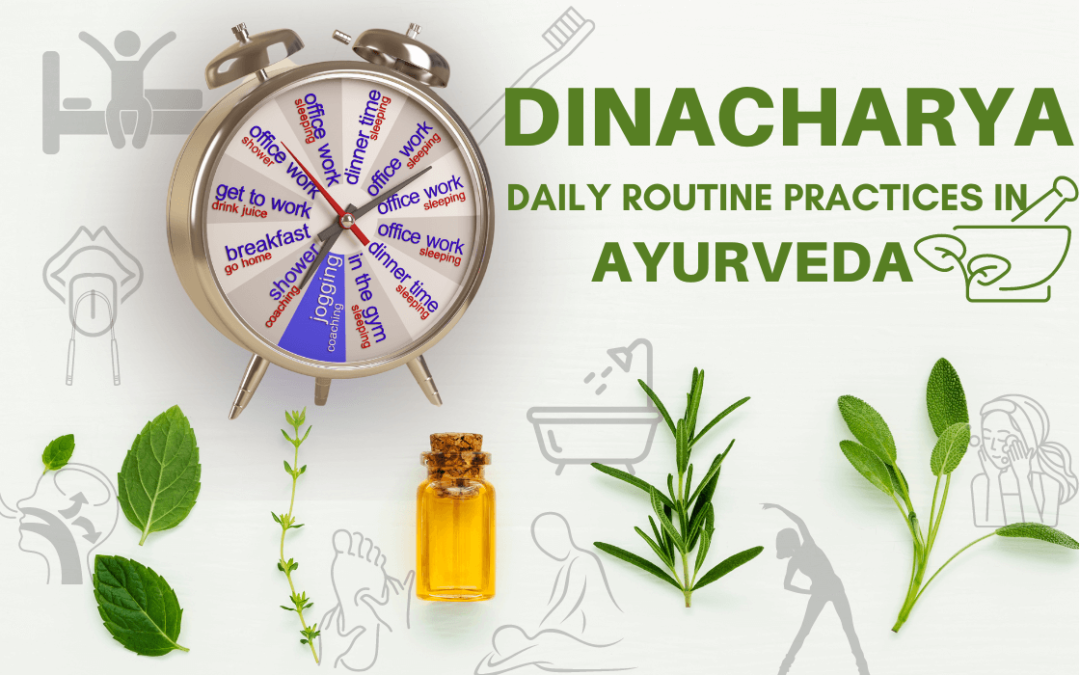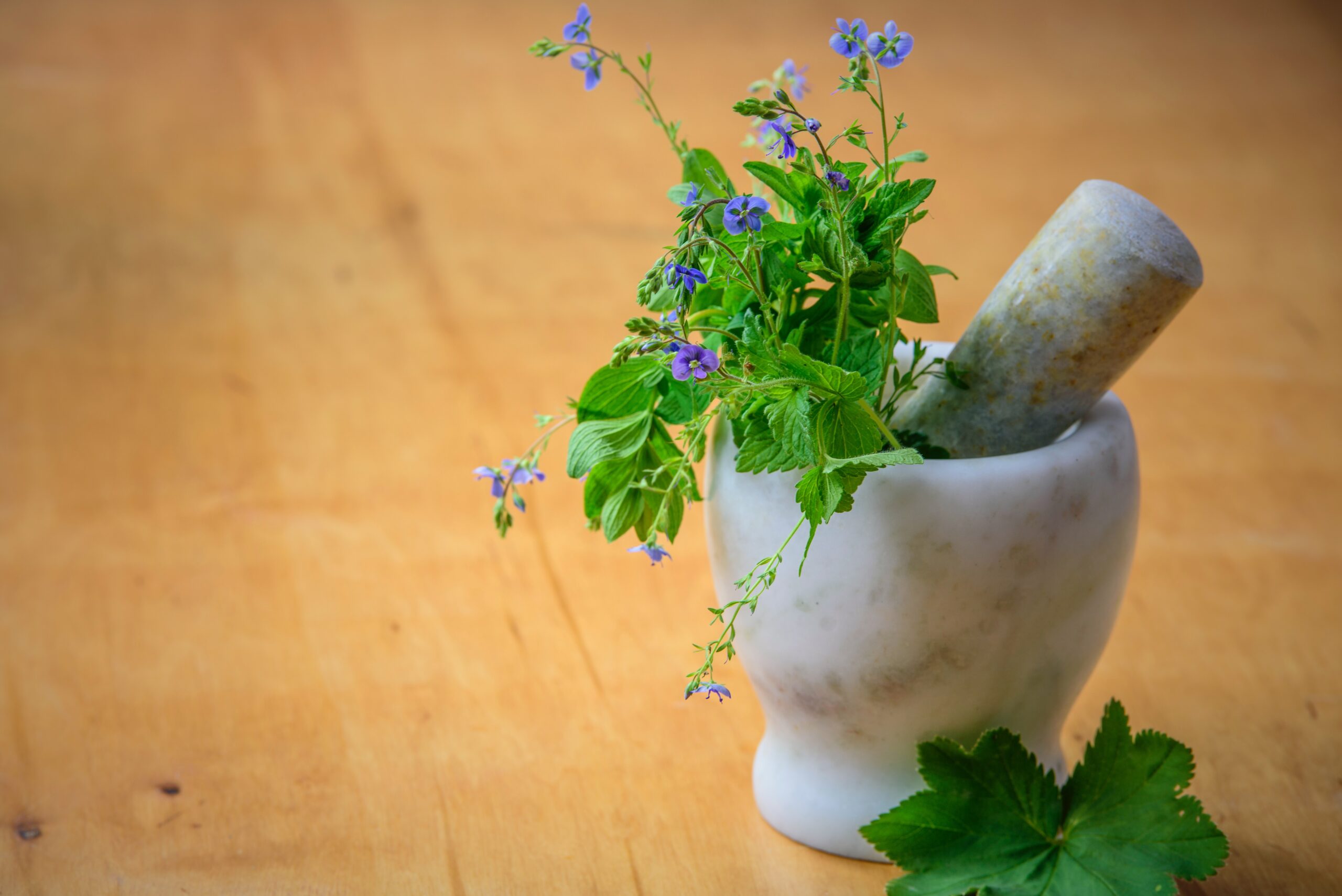In Ayurveda, the daily routine, or Dinacharya, is considered fundamental for maintaining balance and promoting optimal health. By aligning our activities with the natural rhythms of the day, we can enhance physical, mental, and spiritual well-being. Let’s explore the key components of a typical Ayurvedic daily routine:
1. Wake Up Early (Brahma Muhurta)
- Rising during the pre-dawn hours, known as Brahma Muhurta, is highly recommended in Ayurveda.
- The early morning hours are considered auspicious for meditation, reflection, and setting positive intentions for the day ahead.
2. Elimination (Vyavayama)
- After waking, attend to elimination functions, including bowel movements and urination, to remove toxins accumulated overnight.
- Drinking a glass of warm water or herbal tea can help stimulate bowel movements and hydrate the body.
3. Oral Hygiene (Mukha Prakshalana)
- Cleanse the mouth and tongue using a tongue scraper or by gargling with warm water to remove bacteria and toxins accumulated overnight.
- Follow with gentle brushing using herbal toothpaste to maintain oral hygiene.
4. Nasal Care (Nasya)
- Administering a few drops of warm sesame oil or herbal nasal oil in each nostril helps lubricate and cleanse the nasal passages, promoting clear breathing and mental clarity.
5. Oil Massage (Abhyanga)
- Perform a self-massage using warm sesame oil or herbal oil suited to your dosha (Vata, Pitta, Kapha).
- Massage the entire body in circular motions, focusing on joints and areas of tension to improve circulation, nourish the skin, and calm the nervous system.
6. Bathing (Snana)
- Take a warm shower or bath to further cleanse the body and refresh the mind.
- Use natural, chemical-free soaps or herbal powders for cleansing the skin without stripping its natural oils.
7. Exercise (Vyayama)
- Engage in gentle stretching, yoga, or other forms of exercise suitable for your constitution and current state of health.
- Regular physical activity helps improve circulation, digestion, and overall vitality.
8. Meditation and Pranayama
- Dedicate time for meditation, deep breathing exercises, or pranayama to calm the mind, reduce stress, and enhance mental clarity.
- Cultivate mindfulness and inner peace through regular meditation practice.
9. Breakfast (Aahar)
- Enjoy a nourishing breakfast consisting of warm, cooked foods that are easy to digest and aligned with your dosha.
- Include whole grains, fresh fruits, nuts, seeds, and herbal teas to provide sustained energy throughout the morning.
10. Work and Daily Activities
- Approach work and daily activities with mindfulness, focus, and a sense of purpose.
- Take regular breaks to stretch, hydrate, and recharge as needed.
11. Lunch (Aahar)
- Consume a balanced lunch around midday, consisting of freshly prepared, wholesome foods.
- Emphasize seasonal vegetables, whole grains, lean proteins, and healthy fats to support sustained energy and vitality.
12. Afternoon Rest (Bhukti)
- Take a short rest or break after lunch to aid digestion, relax the body, and rejuvenate the mind.
- Avoid heavy mental or physical exertion immediately after eating.
13. Dinner (Aahar)
- Have a light, early dinner preferably before sunset to allow for adequate digestion before bedtime.
- Choose easily digestible foods such as soups, steamed vegetables, and herbal teas to support restful sleep.
14. Evening Routine (Sandhya)
- Wind down in the evening with calming activities such as gentle yoga, meditation, or reading.
- Dim the lights, reduce screen time, and create a peaceful environment conducive to relaxation.
15. Bedtime (Nidra)
- Aim to go to bed early, ideally before 10 p.m., to align with the body’s natural circadian rhythms.
- Practice relaxation techniques such as deep breathing, meditation, or gentle self-massage to promote restful sleep.
Conclusion
By incorporating these Ayurvedic practices into your daily routine, you can support overall health and well-being on physical, mental, and emotional levels. Remember that consistency and mindfulness are key to experiencing the full benefits of Dinacharya. Listen to your body’s signals, adapt the routine to suit your individual needs, and enjoy the journey towards greater balance and vitality.






